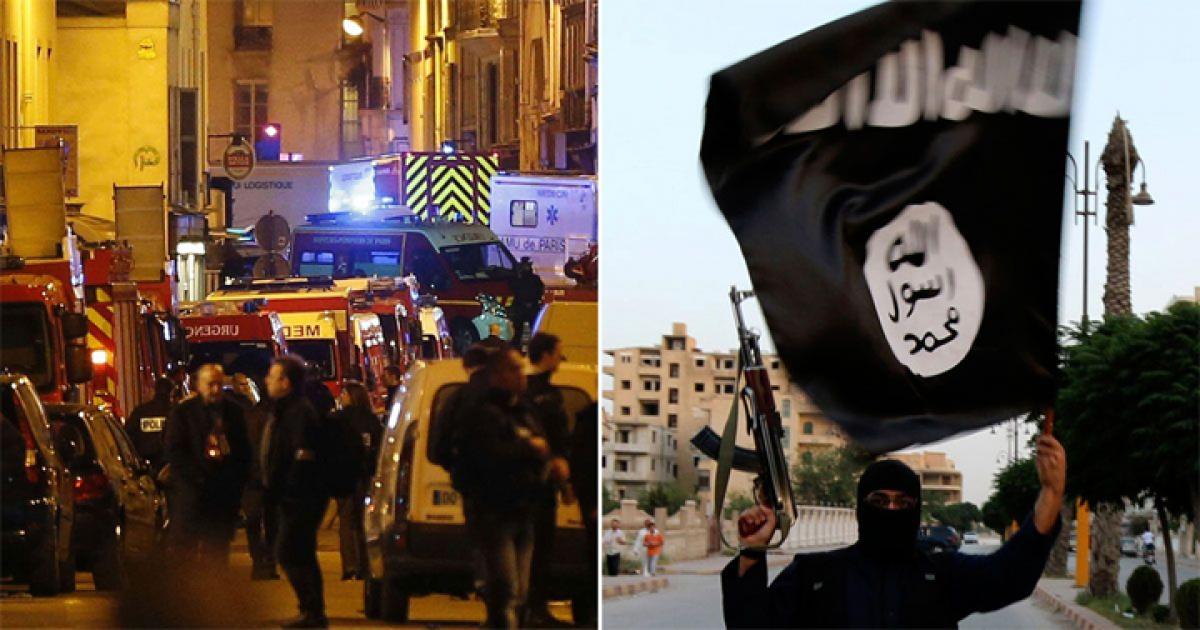Live
- Mohan Babu should immediately issue a public apology: Press Club President Balavardhan
- Strict Protocols Set for Group 2 Exams in Wanaparthy District
- Delhi Police busts gang involved in cable theft on Delhi Metro Blue Line
- MP's Gita recitation programme finds place in Guinness World Records
- Pawan Kalyan Shines Globally as 2nd Most Googled Actor of 2024 Amid Busy Film, Political Career
- Disruptor of House is the chairman himself: Cong and INDIA bloc’s pointed remarks on No-trust notice
- IIIT-Bangalore to host computer vision conference ICVGIP 2024
- F1: Fernando Alonso ‘still dreaming’ of third world championship
- WI vs Bangladesh Watch Controversial Banter Between Shakib and King
- EFLU Celebrates Bharatiya Bhasha Diwas
Just In

x
Highlights
Two of the Islamic State attackers who terrorised Paris were French nationals living in Belgium, officials said on Sunday, as a row over Europe’s refugee crisis reignited, with conservatives demanding an end to “the days of uncontrolled immigration”.
Two of the Islamic State attackers who terrorised Paris were French nationals living in Belgium, officials said on Sunday, as a row over Europe’s refugee crisis reignited, with conservatives demanding an end to “the days of uncontrolled immigration”.
.jpg)
Police have identified the two attackers, Paris prosecutor Francois Molins said, after the first of the seven gunmen was identified as Ismael Omar Mostefai, a 29-year-old who lived in the city of Chartres, southwest of Paris.
“Two more terrorists killed in the night of Nov. 13 were today formally identified through finger prints,” the prosecutor said in a statement, adding they were French and living in Belgium.
The two men, aged 20 and 31, were suicide bombers at the Stade de France and at a bar in the 11th district.
Three jihadist cells staged the co-ordinated hits on Friday night at bars, a concert hall and soccer stadium, killing 129 people and injuring 352, including 99 who were in a serious condition, Molins said, and also put out a request for a Belgian-born man they warned was dangerous.
French authorities said they found the bodies of seven killers but Islamic State, which claimed responsibility as revenge for French military action in Syria and Iraq, said there were eight, raising questions over whether one was on the loose.
France was the first European state to join US air strikes against Islamic State targets in Iraq in September 2014, while a year later it extended its air strikes to Syria. Russia began its own air campaign in Syria in October, but has been targeting mainly areas controlled by other groups opposed to its ally, President Bashar al-Assad, Moscow’s critics say.
On their Twitter feed the police said they were also seeking a Belgian-born Abdeslam Salah in connection with the brazen Paris attacks, describing him as “dangerous”.
As the Belgian connection came to the fore, Premier Charles Michel conceded that a Brussels neighbourhood was a “gigantic problem” given its past links to international terrorism.
Michel said Belgium needed to crack down on radicalisation. “I do not want any preachers of hatred on Belgian soil! There is no place for them in Belgium,” he said on Twitter.
Belgian officials also confirmed two of the gunmen were French nationals living in Brussels, and arrested seven people in the capital after two Belgian-registered cars were discovered in Paris, both suspected of being used by attackers.
At least one of the dead assailants and five of the people arrested in raids had spent time in the poor immigrant Brussels neighbourhood of Molenbeek, officials said.
The results of the probe so far highlight how Molenbeek has for two decades lodged Islamist extremists who have fought or supported wars in Algeria, Afghanistan and Bosnia as well as the current ones in Syria and Iraq, analyst Claude Moniquet said.
“It’s not the only one in Belgium, it is certainly not the only one in Europe, but it is a hotbed for jihadism,” Moniquet added.
Belgium as a whole has spawned nearly 500 jihadists for Syria and Iraq from a population of only 11 million, giving it the highest figure per capita in the European Union, security services said.
What is striking is that Belgium and more specifically Molenbeek remain a haven for jihadists despite the toughening of anti-terrorist legislation as well as the dismantling of recruitment networks and militant cells since the 1990s.“Europe no longer has borders and it is therefore logical that (militants) benefit too,” Brussels mayor Yvan Mayeur said. “But we must stop being a base for those who make war in Europe.”
Molenbeek, where a large Muslim community lives, including a radical minority, is more than ever in the eye of the storm.
“Among this small minority, there are figures known at the European and international levels,” according to Moniquet, CEO of the Brussels-based European Strategic Intelligence and Security Center.
Prosecutors also said the Paris slaughter involved a multinational group with possible links to Germany -- apart from West Asia, Belgium and home-grown French roots.
In Germany, interior minister Thomas De Maiziere said there could be more would-be attackers out there and that Germany was a target country of the Islamic State group just like France.
One attacker appears to have followed the route taken by hundreds of thousands of asylum seekers, crossing by boat from Turkey to the Greek Islands and seeking asylum in Serbia before heading north.
The Serbian government said the holder of a Syrian passport found near the body of one of the gunmen had passed through the country last month.
It said his details were the same as those of a man who had registered in Greece on October 3, after landing on the island of Leros. They believe that another of the assailants may also have passed through Greece with Syrian refugees fleeing civil war.

Next Story
More Stories
ADVERTISEMENT
© 2024 Hyderabad Media House Limited/The Hans India. All rights reserved. Powered by hocalwire.com







